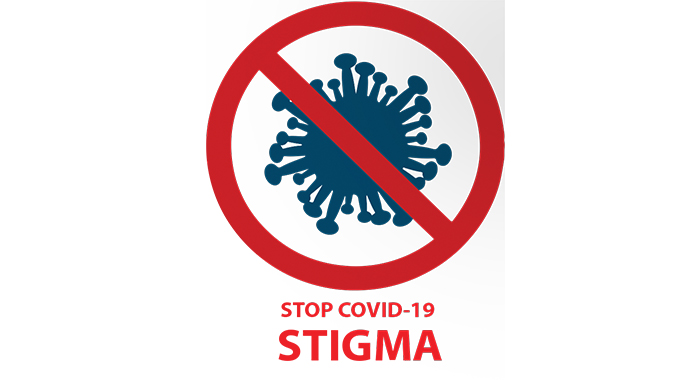Zvishavane nurse faces Covid-19 stigma

Patrick Chitumba, Midlands Bureau Chief
FOR 44-year-old Ms Omega Mapako, a nurse at Zvishavane District Hospital, Covid-19 pandemic has affected her physically, mentally and emotionally and she prays that many people are vaccinated to mitigate against the spread of the virus.
Other than losing close relatives to the virus, she has lost workmates too and now is facing a new challenge, stigma from members of the community whom she said now see her as a source of Covid-19 infections.
Using public transport to and from work where she works in a Covid-19 ward, she is a tenant at a house in Mandava suburb in Zvishavane, living with another family.
In the Zupco bus or kombi, other passengers, she said, don’t want to associate with her and at her lodgings, the other family is now stigmatising her children and they are now forced to stay by themselves.
Ms Mapako said while working in a Covid-19 ward has its challenges, it is the stigma and pressures outside Zvishavane District Hospital which are haunting her and her three children.
Ms Mapako said it has been a struggle for her to even walk in the streets of Mandava or CBD in her uniform as she now faces stigmatisation because she is a health worker whom society thinks is a source of Covid-19 infections.
She says she is now forced to put on her uniform at work and remove it when leaving the hospital to avoid being stigmatised as a carrier of Covid-19.
“Covid-19 has brought stigmatisation on me and my family. I work at Zvishavane District Hospital and stay in Mandava suburb. I use public transport and at times Zupco bus or kombi. I used to leave home in my uniform but now I am forced to put it on while at work and remove it when my shift ends on the way home so that people don’t judge me,” said Ms Mapako.
“At home my core tenant has since ordered her children not to play or associate with mine. They think I infected or can infect my children and then her children because I am a nurse.”
Zimbabwe Nurses Association president Mr Enock Dongo urged Government to improve conditions of service for nurses so that they are able to buy vehicles and stay in their own houses.
“Nurses don’t have designated transport, they don’t have designated houses and they are facing huge challenges in society. Society thinks that they are now a source of Covid-19 infection. Nurses need and other front line workers need to be appreciated for the good work they are doing taking care of patients in the hospitals. It is high time that the Government recognises the important role we play and improve our salaries so that we are able to have cars and houses,” said Mr Dongo.
He said there is also a shortage of nurses since some are in isolation after testing Covid-19 positive while others resigned and others died.
Mr Dongo said there was need for the Government to also improve on the availability of personal protective equipment to protect health workers from Covid- 19.
The Public Service Commission (PSC) last year announced that Government employees who contract the coronavirus in their line of duty will be entitled to financial benefits.
Those who succumb to Covid-19 in their line of duty would be entitled to a full year’s salary paid to their family, on top of the usual benefits associated with their work. According to the Health Service Board (HSB), 4 970 health workers have been infected by Covid- 19 since the outbreak last year while 1 790 have recovered and 24 died.
From the statistics, it shows that about 3 180 are in isolation recovering from the virus.
“From last year to date, 24 health workers have succumbed to Covid-19, 4 970 health workers were infected and 1 790 have recovered. Over 30 000 health workers have received Covid-19 vaccines,” said HSB spokesperson, Ms Tryphine Rachel Dzvukutu.








Comments